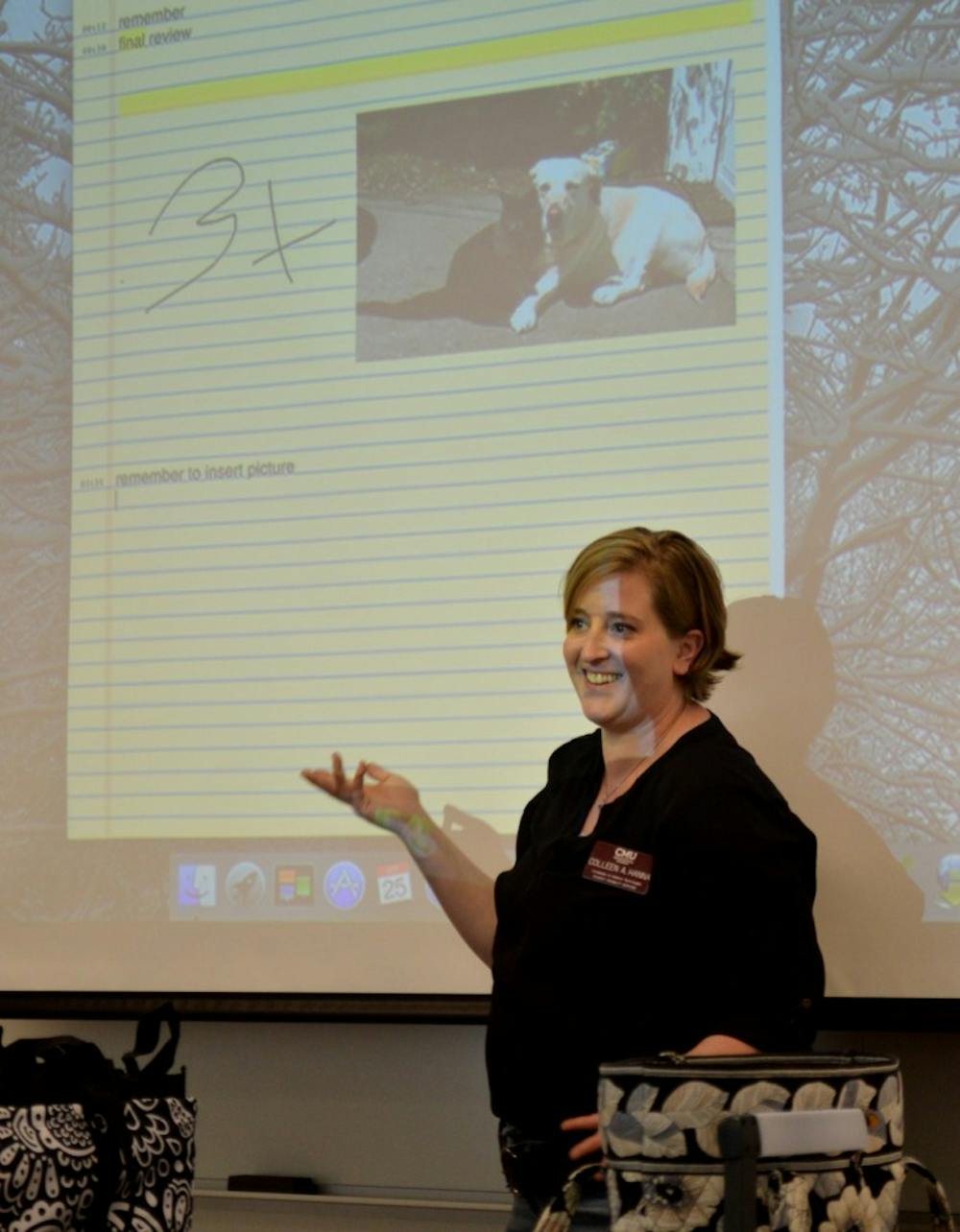Technology increases accessibility for students with disabilities

Technology has made classes at Central Michigan University more accessible for on-campus students with disabilities, but work is still being done to make improvements.
Accessibility for students with disabilities is being updated by offering software to make classes easier to navigate, new buildings being added to campus that are more accessible, and the Accessibility and Advisory Council providing resources to make on-campus events more accessible.
Most learning accommodations in classrooms can be taken care of with software, said Lynne L’Hommedieu, director of Student Disability Services.
Accommodations students receive depend on their disabilities, but students registered with Student Disability Services can have access to the new software for free.
The software was introduced to students in a workshop on Friday, Sept. 25.
Other than recording and transcribing notes, the software can read textbooks and emails, take photos of the board during lectures and insert photos into notes. It includes Kurzweil 3000, Dragon, Sonocent and AudioNote, and can be utilized throughout internships and as students pursue their careers, said Coordinator of Adaptive Technology Colleen Hanna.
The student note takers offered through Student Disability Office attend classes and take notes for students with disabilities. However, L’Hommedieu said she hopes the number of student note takers will decrease dramatically within the next couple years and be replaced by their technology that records and transcribes lectures.
Student note takers are hard to find, especially for upper level classes, she said.
“More and more, we’re going to keep moving in that direction (of technology) because it allows students to operate independently (like) any other student, and not depend on another person,” she said.
Freeland senior Dakota Burch, who is visually impaired, uses Kurzweil to scan books. He can't see well enough to read, so he uses a screen reader.
“(Technology) makes the assignments more accessible so we don’t have to ask for help all the time or have people read it to us,” he said. “It just (allows) us to be able to enjoy college without thinking of it like, ‘Oh, I can’t do this; why can’t I do this?’ and stressing us out.”
The office of Student Disability Services offers various accommodations, with the most popular one being extended time and a quiet space for tests.
“I think for the most part, CMU has come a long way in terms of striving for accessibility,” said Beth Kennedy, American Sign Language instructor and co-chair of the Accessibility and Disability Advisory Council.
She said some buildings on campus are older and not as accessible, while newer buildings have shown more positive changes.
“In terms of accessibility of historical buildings and older things, it’s not just an issue at CMU, but around the world, so it’s exciting to see more and more new construction,” she said.
The Accessibility and Disability Advisory Council, which has almost 40 members from various departments and offices on campus, hopes to make on-campus events more accessible.
“One of our goals I’m most excited about is that we have some funds we’re allotting in the ADAC budget, which is small, where people who are having an event on campus can contact us if they have a need to make an event accessible,” Kennedy said. “If they’re not able to afford interpreters or there’s been a community request for something they don’t have, (people running the event) can contact us and we can try to help with that.”
She said making events accessible for as many people as possible is important, but can be a barrier because of people’s budgets. They’ve already had some requests for interpreters this year. If ADAC can’t provide the funding, she said, their intention is to help people look for other partners to ensure accessibility at events.
“Accessibility is something lots of people can benefit from, so the more we all rally around that, I think the world will be a more accessible place for everyone,” Kennedy said.



